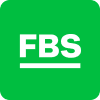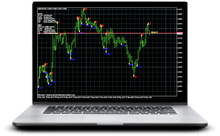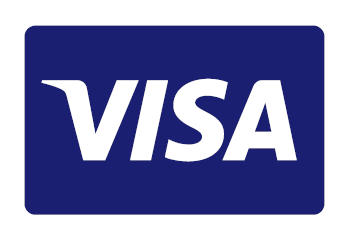Currency Trading
Currency Trading
What is currency trading?
Currency trading, also known as Forex trading, allows traders to profit from an increase or decrease in the value of a currency. Currency traders buy and sell currency pairs, using a Forex broker as an intermediary between buyer and seller. In addition, a trusted broker provides services, such as currency hedging, that help traders make informed trading decisions.
What is a currency market?
The currency market (Forex or simply FX) is an international over-the-counter (OTC) market in which online currency traders, investors, financial institutions, and banks buy and sell the world's currencies, as well as exchange them and speculate on their value.
Forex market works 24 hours a day, 5 days a week. On weekends and holidays trading stops. Practically non-stop trading is possible due to the division into four trading sessions:
- Asian (the Tokyo session), with financial centers in Tokyo, Hong Kong, and Singapore;
- European (the London session), with centers in Frankfurt, Zurich, Paris, and London;
- United States (the New York session), with centers in New York and Chicago;
- Pacific (the Sydney session), with centers in Sydney and Wellington.
|
Session |
Opening hours (EET time) |
|
Pacific (Sydney) |
00:00 - 09:00 |
|
Asian (Tokyo) |
02:00 - 11:00 |
|
European (London) |
10:00 - 19:00 |
|
American (New York) |
15:00 - 00:00 |
How does currency trading work?
In simple words, the essence of currency trading is to speculate on the price differences of currency pairs. There is an opportunity to make money both on the growth of currency and its fall.
Currencies are always traded in pairs, with the first currency in the pair referred to as the base currency and the second as the quote currency. Forex traders simultaneously buy one currency in a pair and sell the other, depending on what they expect and how they predict the value of the currencies relative to each other.
In currency trading, pairs are divided into three categories.
- Major pairs always include the US dollar (USD): EURUSD, USDJPY, GBPUSD, USDCHF, AUDUSD, USDCAD, NZDUSD. They are the most liquid and widely traded in the Forex market.
- Minor pairs consist of two popular currencies but do not include the US dollar: EURGBP, EURJPY, GBPJPY, EURAUD, etc.
- Exotic pairscontain the major currency (usually USD) and the currency from a developing or emerging market: USDBRL, USDCNH, USDTRY, GBPPLN, HKDJPY, etc.
The goal of any trader is to sell an asset as expensive as possible and buy it as cheap as possible. Traders apply methods of technical & fundamental analysis and use trading indicators & robots to increase efficiency.
Political, economic, environmental, and psychological factors influence currency rates. Based on the flow of currency market news, on certain indicators, the trader predicts which currencies will rise in value and which will fall. If the forecast is right, the trader gets a profit. If it is not, he or she bears losses.
Is currency trading legal?
The currency trading market is the largest and most liquid in the world. In most countries, there are controlling organizations which are responsible for the regulation of currency trading.
For example, in the U.S., Forex brokers and dealers must have a license FCM (for brokers) or RFED (for dealers), which, in turn, are accountable to the Commodity Futures Trading Commission (CFTC), from which they obtain their licenses, as well as the National Futures Association (NFA).
In the EU, Forex is regulated by the MiFID financial directive. MiFID is valid in 27 of the 28 countries of the European Union.
Thus, currency trading is a legal and regulated form of financial gain.
What affects currencies?
The value of a currency is affected by a myriad of fundamental factors, such as inflation and interest rates, the level of government debt, and political stability. Typically, Forex traders experience the greatest volatility before and after key economic or political announcements as traders speculate on their potential impact.
Here are the main factors that affect currencies.
Demand and supply
The exchange rate is directly influenced by the supply-demand balance. For example, if the majority of players on the currency exchange for one reason or another are willing to buy euros, the value of this currency will rise. Experienced traders know how to anticipate the movement of world currencies. For this purpose, they use technical analysis and track the influence of macroeconomic indicators.
Interest rates
Central banks of different countries have a significant impact on the exchange rate of the national currency through changes in the refinancing rate. Raising the interest rate is usually aimed at lowering inflation and slowing down the economy. Thus, the currency becomes more expensive and the exchange rate rises.
Geopolitical tensions
Global geopolitical events have a significant impact on currency markets, especially when it comes to major currencies. Often when armed military conflicts or trade wars arise, traders get rid of risky assets and flock to safe-haven assets.
How to trade currencies?
To enter the currency market, get quotes, and start trading, follow these steps.
Open an account
First, you need to choose a reliable regulated broker, such as FBS, and then create an account. You can do it both on the FBS website and in the FBS mobile app. Just fill in a simple registration form and choose the account type (Standard, Micro, Cent, Zero Spread, ECN, or Crypto). Each account has different features, such as spread, leverage, or minimum deposit. If you want to have general terms and conditions, start with a Standard account.
Choose a trading platform
Now you can move on to the selection of a trading platform. At FBS, you can choose between three platforms:
- MetaTrader 4;
- MetaTrader 5;
- FBS Trader.
Download your preferred platform only on the broker's website and not from any third-party resources. Firstly, there may be a Trojan, and secondly, it will not work properly because each company offers its own list of assets, its own quotation provider, account data, etc.
Develop a trading strategy
Forex currencies trading is impossible without systematization and formation of a clear strategy, using the known patterns of the market. Each strategy has its own features and is suitable for a certain style of trading.
There are a lot of strategies, and they differ in terms of time and type of analysis, duration of transactions, size of capital, and so on.
Master your skills
The key to success in trading foreign currencies is the constant development and sharpening of skills. It is often recommended that beginners start with a Demo account, on which they can practice without risking their own real money.
The next level is training materials, market analysis from leading experts, and learning new strategies. Many special programs have been created to help Forex traders learn the basics of Forex, analyze market trends, and automatically manage trading. Electronic trading systems allow:
- to participate in trading around the clock;
- to choose an optimal decision in a difficult situation by means of numerous indicators and trading advisers;
- to follow the planned strategy.
What should you pay attention to if you trade currencies?
There are several factors that determine the success of currency trading. Here are the main ones you should pay attention to in the first place.
- Trading leverage. The leverage allows traders to make trades worth much more than their own capital in the account. At the beginning, the lever gives a significant profit with small capital. Experienced traders multiply their income from active trading with it. However, be careful with the amount of leverage so you do not get a margin call.
- Non-uniform quoting conventions. There is no unified system of naming currency pairs in the Forex market. Therefore, you need to pay attention to how pairs are quoted and what the quote movement means for your trades.
- Transaction costs. Brokerage companies cannot work for free. Therefore, when building a Forex strategy, you must also take into account the losses on brokerage commissions.
- Unfortunately, fraud is inextinguishable in any commercial sphere. If you are offered overly favorable terms, it is most likely a scam. So always be careful and check who you entrust your money to.
- Geographical risk. In countries with unstable currencies, there is always the risk of collapse or great volatility. Be careful to make deals with such currencies, especially for novice traders.
Most traded currency pairs
Forex is one of the most liquid markets in the world. It involves trading different currency pairs. However, only some of them are in high demand and are the most traded. Here are the highest currencies in the world:
- EURUSD
- USDJPY
- GBPUSD
- AUDUSD
- USDCAD
- USDCNY
Conclusion
It is easy and fascinating to start trading Forex, because it is a huge financial market where you always have to be in the know.
You can buy and sell currency stably and profitably if you know the patterns of trading at the exchange, follow the rules of trading and prepare for such trading thoroughly. Learn the theory, put it into practice, exercise discipline and work with your emotions. And let your trading be a profitable and successful business.
2022-09-14 • Updated











